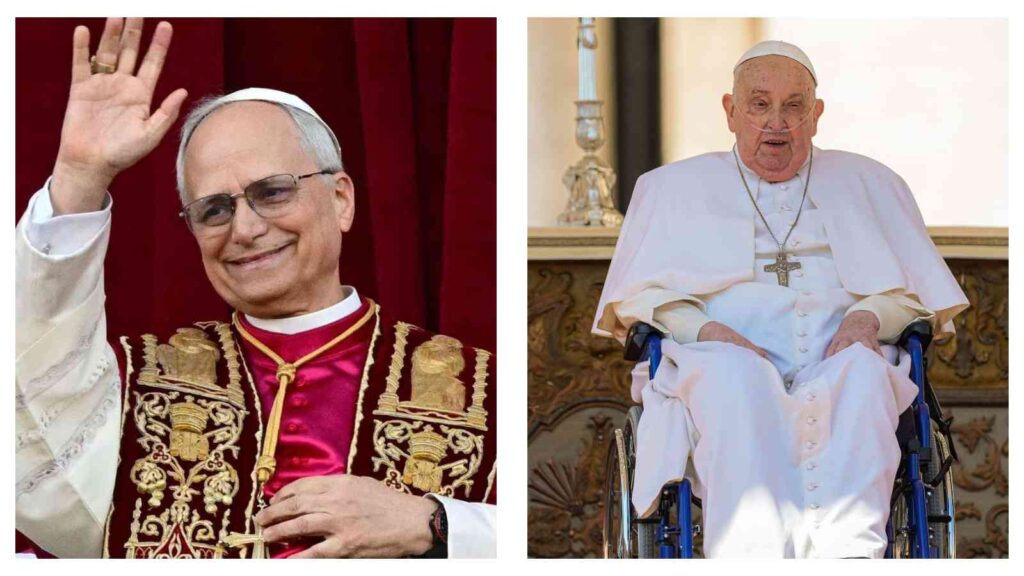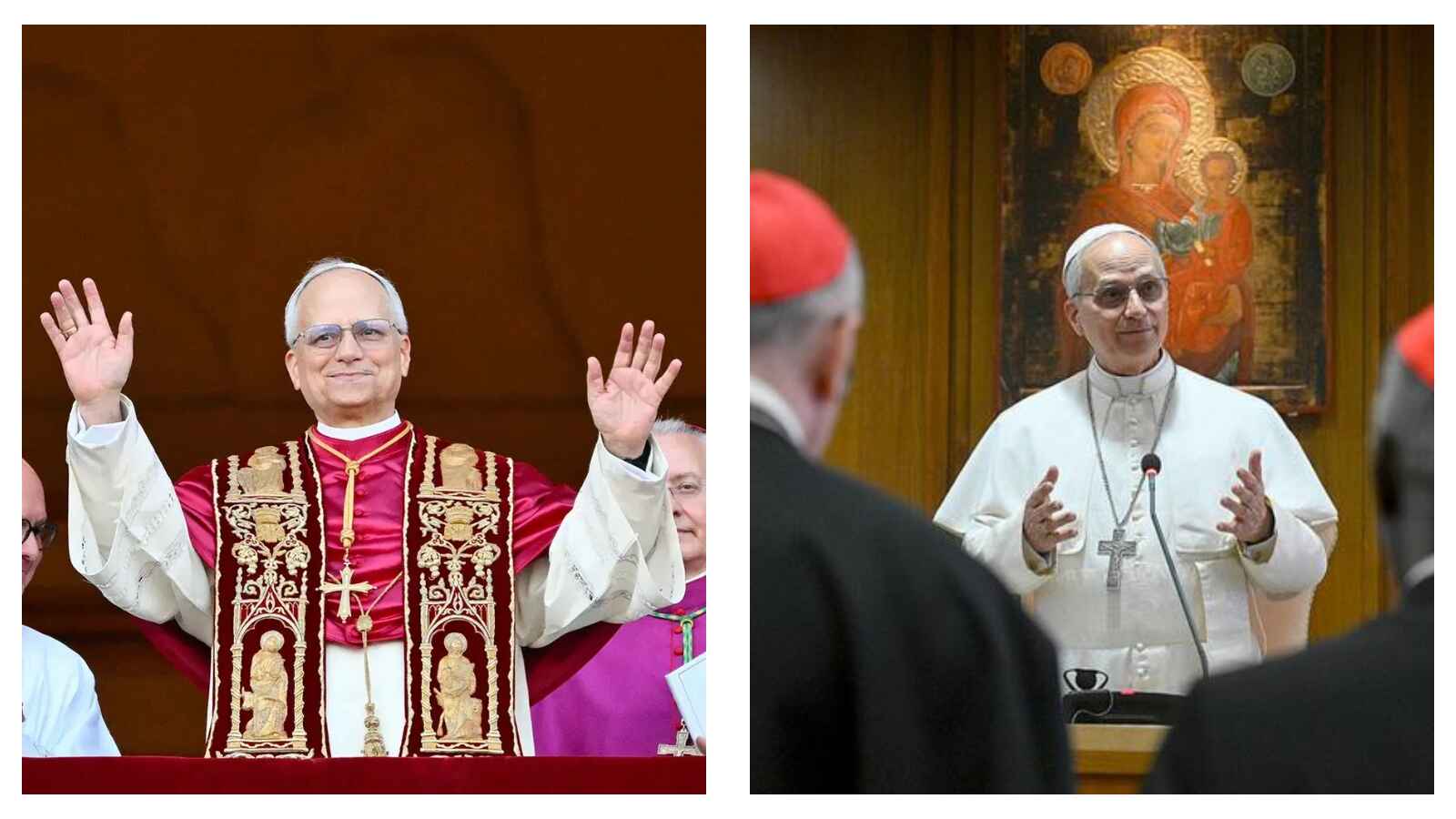By Kamille Q. Cabreza
A new era began for the Catholic Church the moment the election of Pope Leo XIV took place on May 8, weeks after the passing of Pope Francis on April 21, 2025.
Robert Francis Prevost, who was born in Chicago, Illinois, and declared the first pontiff with American descent, delivers a blend of traditional principles and modern sensibilities to the papacy.
The deeds he has committed in his early years unveil a dedication to world peace, interfaith understanding and the Church’s spiritual renewal.
Advocating for global peace
Pope Leo XIV has swiftly built the Vatican’s image as an active peacemaker.
He has offered the Holy See’s support in promoting communication and peacemaking while denouncing the ongoing hostilities in the Middle East and Ukraine.
It was in his first public address to the media in Paul IV Hall at the Vatican on May 12 that he vowed to make “every effort” for peace and presented the Vatican as a mediator in conflicts across the world.
His consistent calls for peace were also heard when speaking to members of the Eastern Catholic Churches, some of which are situated in war-torn nations like Syria, Lebanon, Iraq and Ukraine and frequently suffer persecution as religious minorities.
“The Holy See is always ready to help bring enemies together, face-to-face, to talk to one another, so that peoples everywhere may once more find hope and recover the dignity they deserve, the dignity of peace,” Leo said in his address quoted by Reuters.
“War is never inevitable. Weapons can and must be silenced, for they do not resolve problems but only increase them.”
“Those who make history are the peacemakers, not those who sow seeds of suffering,” he added.
The pontiff praised the tenuous ceasefire between India and Pakistan and demanded an “authentic and lasting peace” in Ukraine, a ceasefire in Gaza and the release of all Israeli captives held by the militant organisation Hamas.
YOU MAY ALSO LIKE: Pacific Conference of Churches reacts to election of new pope

Championing free speech and ethical media
He also underscored on May 12 the value of honest reporting and the responsible application of artificial intelligence.
Pope Leo XIV stressed the press’s role in upholding human dignity and fostering unity by urging reporters to reject divisive narratives and calling for the freedom of reporters who are imprisoned around the world.
“The way we communicate is of fundamental importance: we must say ‘no’ to the war of words and images; we must reject the paradigm of war,” Reuters quoted Leo as saying, addressing thousands of journalists who covered his election and the passing of his predecessor.
Additionally, he advocated for the 361 journalists who were imprisoned at the end of the previous year, according to the Committee to Protect Journalists.
“The suffering of these imprisoned journalists challenges the conscience of nations and the international community, calling on all of us to safeguard the precious gift of free speech and of the press,” stated the pontiff.
He also urged the journalists to “ensure that it can be used for the good of all, so that it can benefit all of humanity” while utilising AI in their work.
Strengthening Interfaith Relations
Pope Leo XIV has made it clear that he is committed to improving communication between the Catholic Church and other religious groups.
He has made contact with Jewish leaders by citing the Second Vatican Council’s Nostra Aetate principles, which revolutionised Catholic-Jewish relations.
“Trusting in the assistance of the Almighty, I pledge to continue and strengthen the Church’s dialogue and cooperation with the Jewish people in the spirit of the Second Vatican Council’s declaration Nostra Aetate,” Leo wrote in the letter quoted by Reuters.
During the 1962-1965 Council, the historic document Nostra Aetate rejected the idea that Jews were all responsible for the death of Jesus and called for dialogue with non-Christian religions.
The short document transformed Catholic-Jewish ties after centuries of distrust and persecution.
In 1986, Pope John Paul II became the first pope to visit a synagogue, calling Jews “our beloved elder brothers” during an address in Rome’s main temple thanks to the dialogue that followed over the next 20 years.
To promote Catholic-Orthodox relations, he also intends to travel to Turkey to mark the 1700th anniversary of the Council of Nicaea.
Embracing the 2025 Jubilee year
Pope Leo XIV is actively participating in the ongoing 2025 Jubilee, serving as the host of a number of activities meant to promote community involvement and spiritual renewal.
The Jubilee of Families, Children, Grandparents, and the Elderly (May 30 – June 1) and the Jubilee of Youth (July 28 – August 3) are two noteworthy upcoming events.
With initiatives centered on culture, innovation, inclusivity, and sustainability, Rome is undertaking major changes to accommodate the pilgrims.
Over 30 million pilgrims are expected to visit the city during the Jubilee year.
READ NEXT: Martin Scorsese documentary ‘Aldeas – A New Story’ to feature Pope Francis’ final interview
